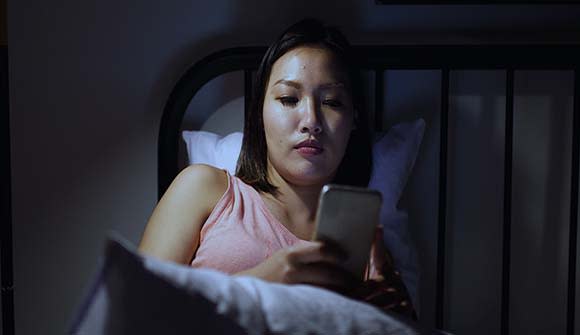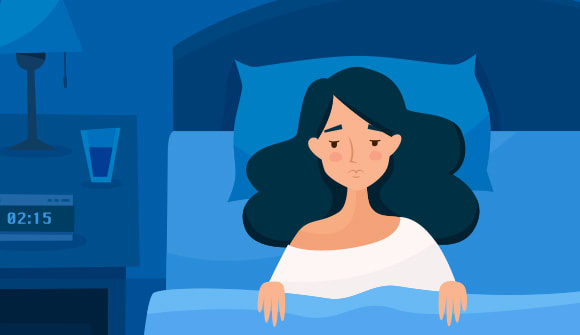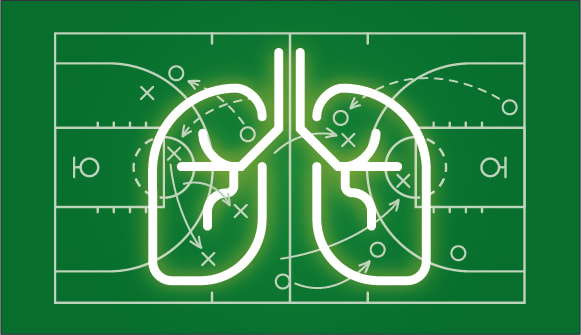Blue light insight
How screen time disrupts sleep patterns.
Article Author: Johnny Woodhouse
Article Date:

You’ve probably heard about the harmful effects of ultraviolet rays, which can damage your skin and eyes. But did you know high-energy blue light waves are nearly as powerful?
By definition, blue light is a color in the visible light spectrum that can be detected by the human eye. At one time, the only source in the world was the sun. Today, it’s all around us due to our widespread use of electronic devices that rely on high amounts of blue light to reduce contrast.
Blue and the brain
This type of light can help boost alertness, elevate moods and increase a feeling of well-being. It also regulates a person’s internal clock, known as circadian rhythm.
But our brains have a hard time distinguishing between the environmentally friendly blue light from the sun from the artificial kind emanating from an electronic device.
“It all depends on the timing of when you’re exposed to blue light,” said Emily White, PhD, a psychologist with Baptist Behavioral Health who specializes in behavioral sleep medicine. “Blue light exposure right after waking can actually help you get going in the morning, but the alerting properties can become a problem as it gets closer to bedtime.”
That’s because blue light suppresses the body’s natural release of melatonin, a hormone that makes us feel sleepy and is produced by the brain in response to darkness. Without the melatonin release, it can take longer to fall asleep.
Blue light exposure also can exacerbate sleep disorders, like insomnia or shift work disorder. It may worsen delayed sleep phase syndrome, a condition in which a person is unable to fall asleep for at least two hours past a conventional bedtime, making it hard to wake up at a desired time.
Slumber solutions
Looking for ways to improve your sleep? Dr. White offered a few tips:
Avoid using electronic devices at least 30 minutes before bed.
Read a printed book or magazine instead of using a phone or tablet.
Use a white noise machine.
Cover your alarm clock or put it under your bed to avoid clock-watching.
Wake up at the same time every day and avoid the temptation to sleep
in on weekends or days off.
Ward off blue light effects
In today’s wired-up world, it’s impossible to avoid artificially produced blue light completely. To minimize the effects, you can try:
- Wearing blue-light-blocking glasses (red, orange or amber colored lenses are best).
- Adding a screen filter app to your smartphone, tablet or computer.
- Switching your devices to night mode.
- Downloading a computer program that gradually reduces the amount of blue light emitted from your screen starting at sunset.
- Taking regular breaks from your devices every 20 minutes.
If you are having problems sleeping, call Baptist Behavioral Health at 904.376.3800 and request an appointment for behavioral sleep medicine services.



